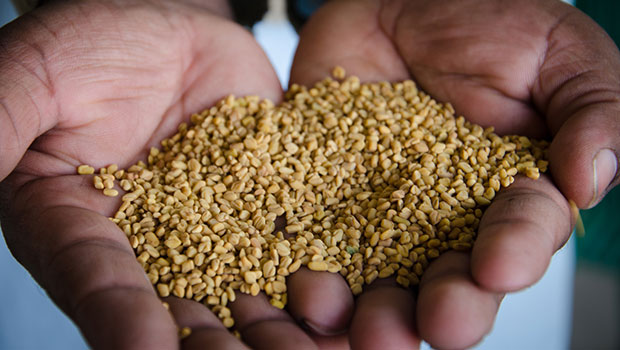A staple of Indian and Middle Eastern cuisine, fenugreek is a golden seed with a distinctive slightly bitter, nutty flavour profile. Not only is it a tasty addition to your cooking repertoire, but its age-old health benefits also have many hailing it as the next big natural health tonic since the rise of turmeric lattes.
ALSO READ: The golden latte – and the reason for its divine and lofty name
Cooking with fenugreek
In everyday cooking, fenugreek seeds are typically ground into a powder and added to spice mixes for curries, meat rubs, pickles and dahls. The seeds themselves are slightly square and mustard-yellow in appearance; roughly the size of a corn kernel. Known as “methi” in Indian cooking, the fresh leaves of the plant can be used in salads while dried fenugreek leaves are used to finish off fragrant cooked dishes like sauces, curries, vegetable dishes and soups.
Potent health boost
Breastfeeding moms struggling with breastmilk production will be familiar with the lactation-boosting properties of fenugreek tea, but the seed has been used for thousands of years in the world of alternative medicine for a whole range of health benefits. Healthline lists fenugreek’s potential health benefits as boosting testosterone production, lowering cholesterol and even possibly improving blood-sugar control for people with diabetes.
How to take it
To get the most benefits from the seeds, experts advise they be soaked overnight and a teaspoon of the seeds be taken on an empty stomach first thing in the morning. Their bitter taste might not be everyone’s cup of tea, though, so feel free to add them to your lunch or dinner instead. One teaspoon a day is enough to guarantee you get the maximum health-boosting benefits (it isn’t recommended that you take more than that per day).
If you want to kick it up a notch, try your hand at sprouting some of your own fenugreek seeds at home and then adding them to delicious salads and toppings. The crunchy, sprouted seeds are said to be rich in most of the B vitamins and contain a wide range of essential minerals such as iron, potassium, calcium, selenium, copper, zinc, manganese and magnesium.
Health information has been verified by Juliet Fearnhead, a registered dietician.

